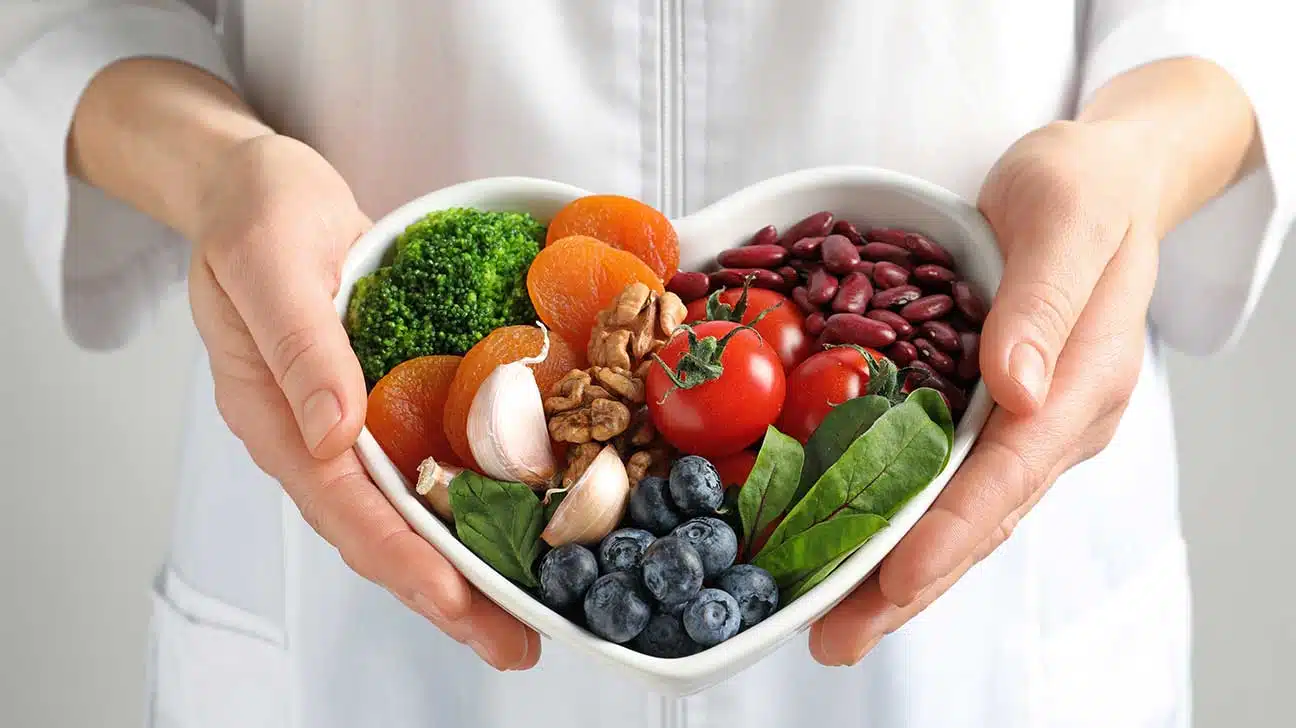
It is well-known that good nutrition contributes to better outcomes for physical fitness and mental wellness. But did you know that the same goes for substance abuse treatment?
Diet and nutrition have a major role in assisting with recovery from drug or alcohol addiction.
Focusing on proper nutrition and healthy eating can help avoid malnutrition, aid the detox process, and help with many other aspects of addiction treatment.
Physical Health Impacts Of Addiction
Addiction taxes the body, wreaking havoc on various systems and organs of the body, from the liver to the nervous system. Substance abuse can also increase the risk for cancer.
It can cause dehydration, hinder nutrient absorption, and cause nausea, vomiting, and other gastrointestinal (GI) distress, as well as cause lasting damage to the liver and other vital organs.
This is why nutrition must be given attention during the recovery process. Good nutrition can help the body restore itself and heal.
Substance Abuse And The Body
Addiction changes how the brain works. In some cases, a person’s appetite may be suppressed due to the dopamine release in the brain, leading to weight loss and nutritional deficiencies.
Addiction can also change serotonin levels, which affects both mood and food intake.
Preoccupied with obtaining, using, and recovering from substances, people also may avoid eating, or reach for quick, unhealthy carbs, which can spike blood sugar.
Substance use can cause malabsorption of certain nutrients, or otherwise cause their deficiency, including vitamins D and B, iron, magnesium, thiamine, and amino acids.
Alcohol’s Health Effects
Alcohol use can have a negative effect not only on your stomach, blood pressure, pancreas, kidneys, and liver, but also on your micronutrient absorption, risking a thiamine deficiency.
Alcohol use can also cause brain matter to atrophy, in part because of the dehydration it causes.
Imbalances in electrolytes due to dehydration can cause a number of other issues with physical health and mental well-being, including exacerbating mental health issues such as anxiety and depression.
Other Substances’ Impact On Health
With any substance use, there can be either substantial weight loss or weight gain. Opioid use can affect the hormones that control hunger, for example, and also reduce saliva production.
Also common with addiction, dehydration may cause constipation and other GI problems that, along with dehydration, can limit nutrient absorption by the body.
The effects of a lack of dopamine and slowed neurotransmitter processing due to poor nutrition can also further affect appetite and cause drug cravings.
Recommended Foods During Addiction Recovery
Understanding the physical impacts of addiction can help treatment providers determine which foods will be helpful for each person in recovery.
How Does Food Help With Recovery?
During detoxification from drugs or alcohol, it can be difficult to even think about nutrition. But good nutrition can help ease the withdrawal process, reducing withdrawal symptoms.
A healthy diet can help reduce inflammation, offer more energy, improve digestion and nutrient absorption, boost the immune system, enhance mood, and help reduce drug or alcohol cravings.
Foods That Support Recovery
Helpful foods for the liver include beets, broccoli, berries, nuts, and beans. For foods that boost thiamine levels, try whole wheat bread, brown rice, black beans, cereal, and eggs.
For the kidneys, add cabbage, cauliflower, garlic, onions, apples, berries, fish, egg whites, avocado, and squash to your diet.
Keeping adequately hydrated can improve brain cell communication, avoid cell membrane damage, improve mood, streamline nerve function, and also help with GI functioning.
Foods to support addiction recovery include:
- protein sources: tofu, salmon, lean meats, eggs, beans, dairy
- fiber sources: fruits, vegetables, whole grains (spinach, kiwi, bell peppers, broccoli, oats, quinoa)
- healthy fat sources: avocado, nuts, olives and olive oil, chia seeds
- antioxidant and vitamin sources: berries, oranges, pomegranates, and other fruits
Depending on your needs, you may also want to consider adding complex carbohydrates to your diet, such as quinoa, oats, brown rice, and lentils.
For stress or dehydration recovery, your doctor may recommend foods with magnesium, such as leafy greens, and potassium, such as bananas and kiwi.
Older adults may also be advised to consider calcium, especially people who typically stay away from dairy products and may have calcium deficiencies.
Improved Nutrition Leads To Better Recovery
It’s important to talk to your healthcare provider first to see what your specific nutritional needs may be, and also consider any modifications for food allergies if necessary.
Supplements for B vitamins, vitamin D, vitamin A, or omega-3 fatty acids may be recommended to help further aid recovery, depending on your nutritional deficiencies.
Some drug and alcohol addiction treatment facilities offer nutrition education programs, care from dieticians, and healthy prepared meals.
Good nutrition helps during all stages of the recovery process, expediting the healing process and offering better outcomes overall.
Find Addiction Treatment Today
If you or a loved one is in need of treatment for addiction, you can find help today by calling or visiting AddictionResource.net.
Addiction Resource aims to provide only the most current, accurate information in regards to addiction and addiction treatment, which means we only reference the most credible sources available.
These include peer-reviewed journals, government entities and academic institutions, and leaders in addiction healthcare and advocacy. Learn more about how we safeguard our content by viewing our editorial policy.
- International Society of Substance Use Professionals — Using Nutrition to Promote Addiction Recovery
https://www.issup.net/knowledge-share/resources/2021-03/using-nutrition-promote-addiction-recovery - National Kidney Foundation — Superfoods
https://www.kidney.org/atoz/content/superfoods - Utah State University — Diet, Nutrition, and Substance Use Disorder
https://extension.usu.edu/heart/research/diet-nutriton-and-substance-use-disorder - WebMD — What Is A Thiamine Deficiency?
https://www.webmd.com/vitamins-and-supplements/what-is-a-thiamine-deficiency


